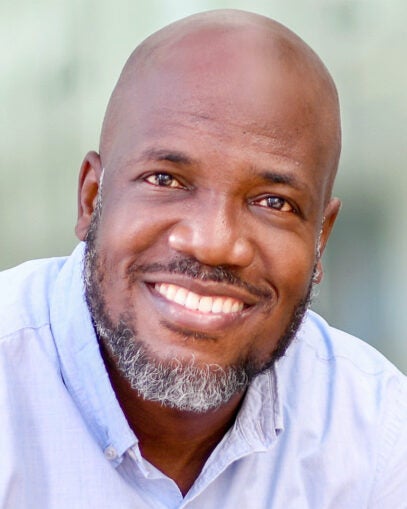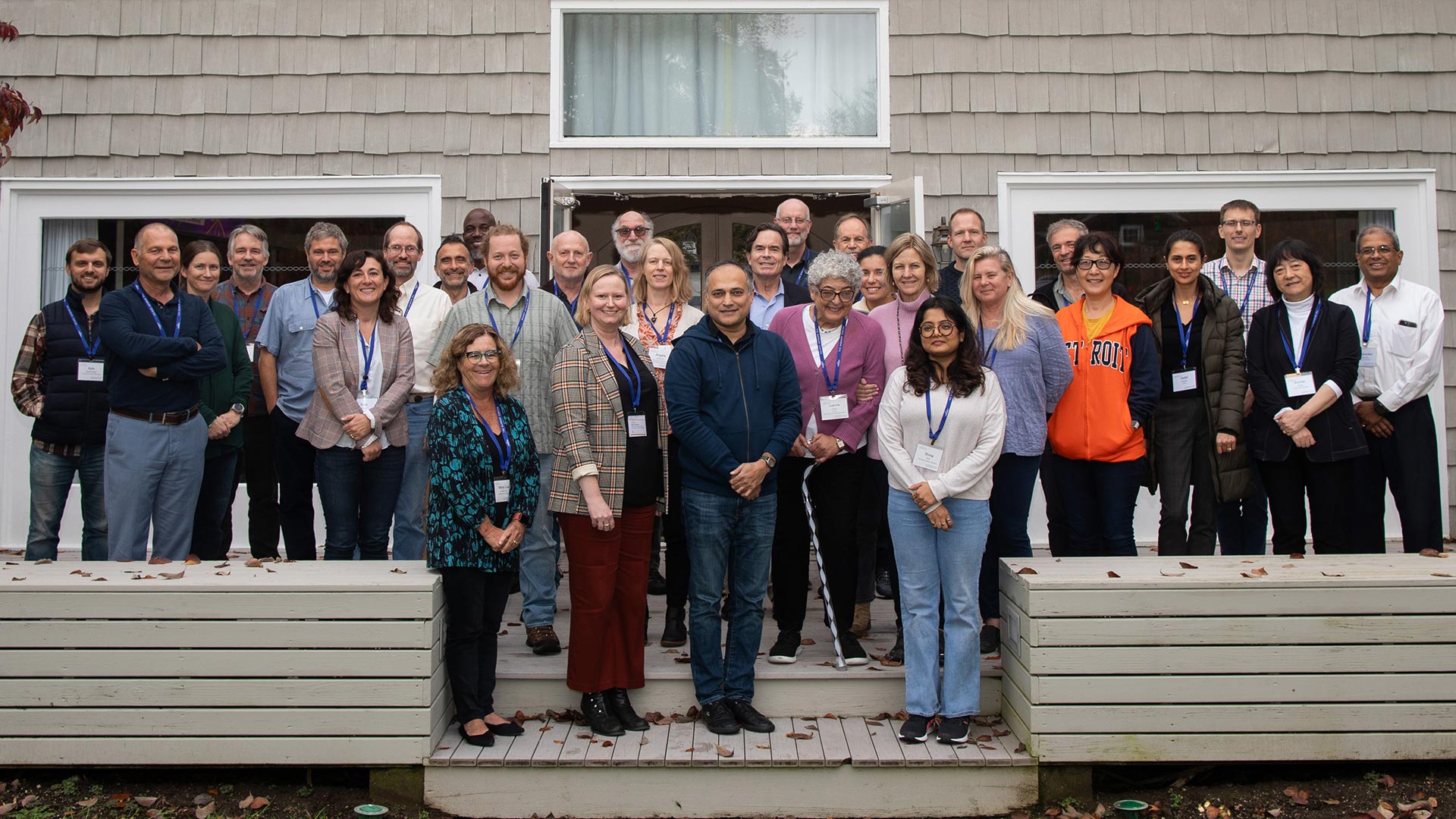During the Banbury Center’s October 2023 meeting, “The Future of Plant-Environment Interactions: Challenges and Opportunities in a Changing Climate,” I had the opportunity to meet Cranos Williams, M.S., Ph.D. Professor Williams is the Goodnight Distinguished Professor of Agricultural Analytics at North Carolina State University, with primary and secondary appointments in electrical and computer engineering, and plant and microbial biology, respectively. Professor Williams earned his M.S. and Ph.D. in electrical engineering from North Carolina State University. We spoke about his experience leading the highly collaborative and interdisciplinary EnBiSys (Engineering Computational Methodologies for Multi-hierarchical Biological Systems) Research Laboratory.

Can you tell me about what you do in, more or less, two sentences?
My lab primarily focuses on the development of computational intelligence and multi-scale modeling approaches for understanding biological systems – primarily, plant systems. We look across biological scale to understand various interactions – biochemical interactions, molecular interactions – that influence plant behavior, plant growth, and plant resilience.
What is your favorite part about what you do? What gets you excited to go to work?
I think that the interdisciplinary nature of it is my favorite part. I get the chance to work with a variety of individuals, from academics to agricultural stakeholders: growers, packers, et cetera. I think that the diversity in backgrounds, diversity in ideas, and diversity in research problems really helps to motivate me, because I am constantly learning more about things that are in the periphery, or sometimes even right outside of, my expertise. That also becomes particularly satisfying when I have opportunities to use my expertise to really address complex problems.
What are some of the challenges you face in your work?
The same exact thing [laughs]. It can be extremely challenging to work across disciplines and fields. There is always something that you are learning, and there are different individuals and personalities whom you are interacting with. As a result, the work requires a variety of learning and communication tools. It becomes rewarding, but it is difficult. I’ve found that being resilient – identifying ways to get through the storm – makes you better.
How did you first become interested in targeted computational analytical solutions for modeling and controlling biological systems?
I’ve always been an engineer at heart; I knew that I wanted be an engineer since I was ten years old. I think that my curiosity has always led me to try to address difficult problems. When I went to graduate school, I was exposed to the biology side, and introduced to another complexity that I didn’t even know existed; it snowballed from there. Being able to apply my love of engineering, data analytics, modeling, and signal processing outside of my specific discipline – to plant systems – became extremely rewarding. I started at the more fundamental level – understanding molecular interactions, gene regulation, et cetera – and have really expanded to agronomical applied use cases, where I get the opportunity to interact with growers, producers, and packers.
Through your work, what kind of impact are you hoping to make?
That’s a good question. Honestly, I am trying to be useful [laughs]. I am trying to identify ways that I can utilize the expertise in my lab to make a difference in the progression of science, and gain insight into the fundamental mechanisms of plant systems, the impacts of combinatorial stress conditions, how plants can become more resilient, and how to identify genes that are responsible for certain outcomes. Analogous to that, we are interacting with agricultural stakeholders, using our algorithms to address their challenging questions and make them more profitable, resilient, and sustainable, especially in the presence of change: changing economic situations, changing personnel – which is a big problem in agriculture – and even changing environmental conditions.
Is there a recent development in your field that you believe will have a large impact?
The emergence and continued use of large-scale machine learning models is going to have significant impact. We have to get to a point where we better understand how to effectively use these tools, but I think that they have the potential to unlock a lot of the information that is hidden behind generated data.
I do think that more attention is really going to need to be paid to data management and data engineering – basically, the dirty work at the beginning: understanding how the data needs to be pre-processed; how the data needs to be worked with; and how to potentially develop, select, or even engineer features that can be most useful in some of these models. That type of knowledge is not very common because people who are true data engineers oftentimes don’t work in this field. Figuring out how to translate that knowledge to this space is going to be extremely important – primarily because of the amount of data that is out there, but lots of data doesn’t mean that it is useful. It oftentimes needs to be structured in a certain way in order to be useful in some of these different models. I think that is an opportunity in this space as well.
This is your first time at the Banbury Center. What do you think of the meeting so far? Is there a general topic or discussion that you have particularly enjoyed?
Oh, it’s fantastic. Honestly, all of the talks have been very informative. Some are within areas of my current knowledge; for example, the talks on iron deprivation or multi-scale modeling. Those are things that I am more familiar with, so I can think a lot about how they interact with the work that I am doing. But there are some other things that I am not as familiar with, and I see this primarily as a learning opportunity. I think that – at a meeting like this, with all of these different experts – the objective is to expose participants to a certain level of information that they can learn from, so they can begin to see the connecting threads between different ideas. Ultimately, that is probably what is going to be needed to address these big, challenging problems. Being able to connect with the talks that are more related to my work, as well as new potential opportunities that may turn out to be future research directions – that’s what I’ve really enjoyed.

